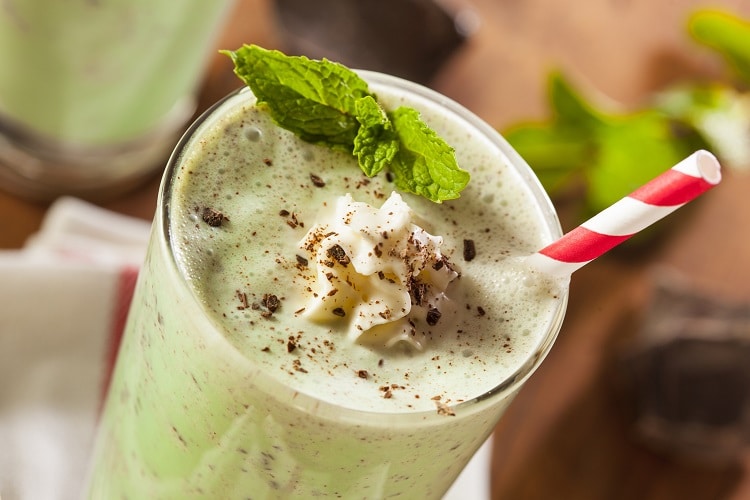This message is brought to you by The Chester County Hospital and Health System.
Being healthy is important both before and during pregnancy. Considering almost fifty percent of all pregnancies are unplanned, it is very important to pay attention to nutrition before getting pregnant. This article will review with you just a few of the recommendations on how to eat healthy before, during and after pregnancy.
Folic acid is crucial during pregnancy. According to Dianne Hotmer, M.D. of Chester County OB/GYN Associates, “getting enough folic acid in your diet reduces your risk of having a baby with problems such as a neural tube defect or spina bifida.” Folic acid is a B vitamin that can be found naturally in leafy green vegetables, beans and oranges. Dr. Hotmer recommends about 600 micrograms of folic acid every day.
Renee Bender, D.O. of Associates for Women’s Medicine, adds that “It is common for women to be anemic upon becoming pregnant,” “Eating red meat increases your iron levels, but if you are a vegetarian then I recommend taking an iron supplement to ensure you get enough iron.” Iron is very important for the production of hemoglobin, the molecule in our red blood cells that carries oxygen. Oxygen, as you can imagine, is critical to most metabolic processes, not to mention the healthy development of a baby.
“The easiest way to get an adequate dose of folic acid and iron is to take a multi-vitamin specifically designed for women. Prenatal vitamins fulfill this goal and I generally advise women to take them when pregnant or trying to get pregnant,” suggests Dr. Hotmer.
So, what else do you need to make sure you get enough of besides iron and folic acid? “Calcium and vitamin D3 play a big role in a healthy pregnancy ,” says Dr. Hotmer. “Most young women should get at least 1000 mg of calcium daily. And, when you are pregnant, that number rises to 1200 mg. You should also stay at or around 1200 mg a day after you deliver if you are breastfeeding.”
Vitamin D3 is necessary in order to enable calcium absorption throughout the body. Even though there are so many foods that provide adequate calcium, Dr. Bender strongly urges that women take a Vitamin D supplement as well. The Institute of Medicine determines that 800-1000 international units (IU) of vitamin D3 daily are sufficient to avoid a deficiency. Suffice it to say that it is a necessary nutrient that should be part of your diet. You can also soak in some Vitamin D3 by treating yourself to a few minutes of sunshine every day!
Lastly, we need to incorporate omega 3 three fatty acids into our diet. Omega 3s can be acquired from oily fish such as salmon or from walnuts or olive oil. These fats are considered “essential” because our bodies don’t produce them naturally and we need to get them from the foods we consume. “More and more data is coming out about omega 3 fatty acids and its importance in the development of the fetal brain,” says Dr. Bender. “Many of the prenatal vitamins you can find today contain DHA, which is one very important type of omega 3 fatty acid. Be sure to look for this when selecting a prenatal vitamin.”
So, now that we know about what we should eat/take while pregnant, let’s think a little bit about what we shouldn’t. Everyone has heard of the long list of what you can’t eat while pregnant, but do we know why? Dr. Bender explains that “there are three main issues to be concerned about in terms of food borne illness when pregnant. These things are are toxoplasmosis, listeria, and methylmercury.”
According to Dr. Bender, Toxoplasmosis is a harmful parasite that can infect pregnant women and can be transmitted by ingesting raw and undercooked meat, unwashed fruits and vegetables. So, there goes that sushi or rare steak that you have been craving. Toxoplasmosis is also transmitted in soil, and cat litter boxes. So, she advises that women wash their fruits and vegetables well, avoid ingesting undercooked meat, wear gloves when gardening and avoid being in contact with cat fecal matter. Ladies, hear that, you are off the hook cleaning the kitty litter for at least 9 months!
Next up, is listeria. This harmful bacterium is found in hot dogs, lunch meat (especially turkey), unpasteurized milk and milk products. Dr. Bender recommends patients avoid eating hot dogs, lunch meat and soft cheeses such as Feta and Brie.
Lastly, methylmercury, a metal that can be found in certain fish, can be harmful to a baby’s nervous system at high levels. Pregnant women should avoid certain seafood such as shark, swordfish, tilefish, and king mackerel. Dr. Bender feels that it is OK to eat the suggested two servings (12 oz.) per week of fish containing lower levels of mercury, such as shrimp, canned light tuna (rather than albacore tuna), salmon, catfish and Pollock. This will aid in ensuring that you get enough omega 3s.
We talked about what to eat and not eat, but we also must note that during pregnancy, women should also avoid artificial sweeteners and limit caffeine to one serving daily. So, take it easy on the diet sodas and any caffeinated beverages or foods.
Dr. Hotmer also advises her patients to aim for three vegetables and two fruits every day in order to provide women with adequate vitamins and minerals. She also recommends patients to avoid processed and refined foods. “Surprisingly, the increase caloric requirements for pregnancy really are not that much,” says Hotmer. “Essentially, 300 additional calories is all that is needed. None of this ’eating for two‘ mentality!”
Dr. Bender adds, “Regarding weight gain, adding around 25-30 pounds to your pre-pregnancy weight is normal. Underweight women should gain more, while overweight women should gain less.” Please talk with your doctor about the specific recommendations for weight gain as they pertain to you.



